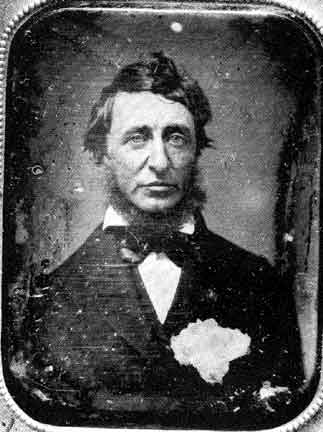Thoreau, Henry David

Naturalist, Philosopher, and Author
(1817-1862)
Born in Concord, Massachusetts on July 12, 1817, Thoreau studied at Harvard. After graduating in 1837, he briefly taught school, and then worked as a pencil-maker and surveyor (1837-38). Then, in 1841-43, while living with Ralph Waldo Emerson, Thoreau published essays in the Dial, the transcendentalist magazine.
Between 1845 and 1847, however, he lived alone at Walden Pond in order to prove that he could exist in the woods without the products of industrial civilization. But his residence at Walden was interrupted by a days imprisonment when he refused to pay the state‚s poll tax in support of the Mexican War. (He insisted that the war was nothing more than a Southern conspiracy to extend slavery). In 1849, his "Civil Disobedience," was published, recording his experience and criticizing centralized government; it argued that an individual should resist the state if it required him "to be an agent of injustice to another."
Thoreau‚s intimate relation with nature gave him inspiration for his A Week on the Concord and Merrimack Rivers, also published in 1849. He used the book as a vehicle for the discussion of his ideas on literature, life, and religion. And in Walden (1854), he urged people to "simplify" their lives and regain their spirituality.
Supporting the abolitionist cause, he made many speeches on behalf of John Brown after the raid on the arsenal at Harpers Ferry (1859). He fell ill soon after, however, and died on May 6, 1862, in Concord Massachusetts.
 >
>